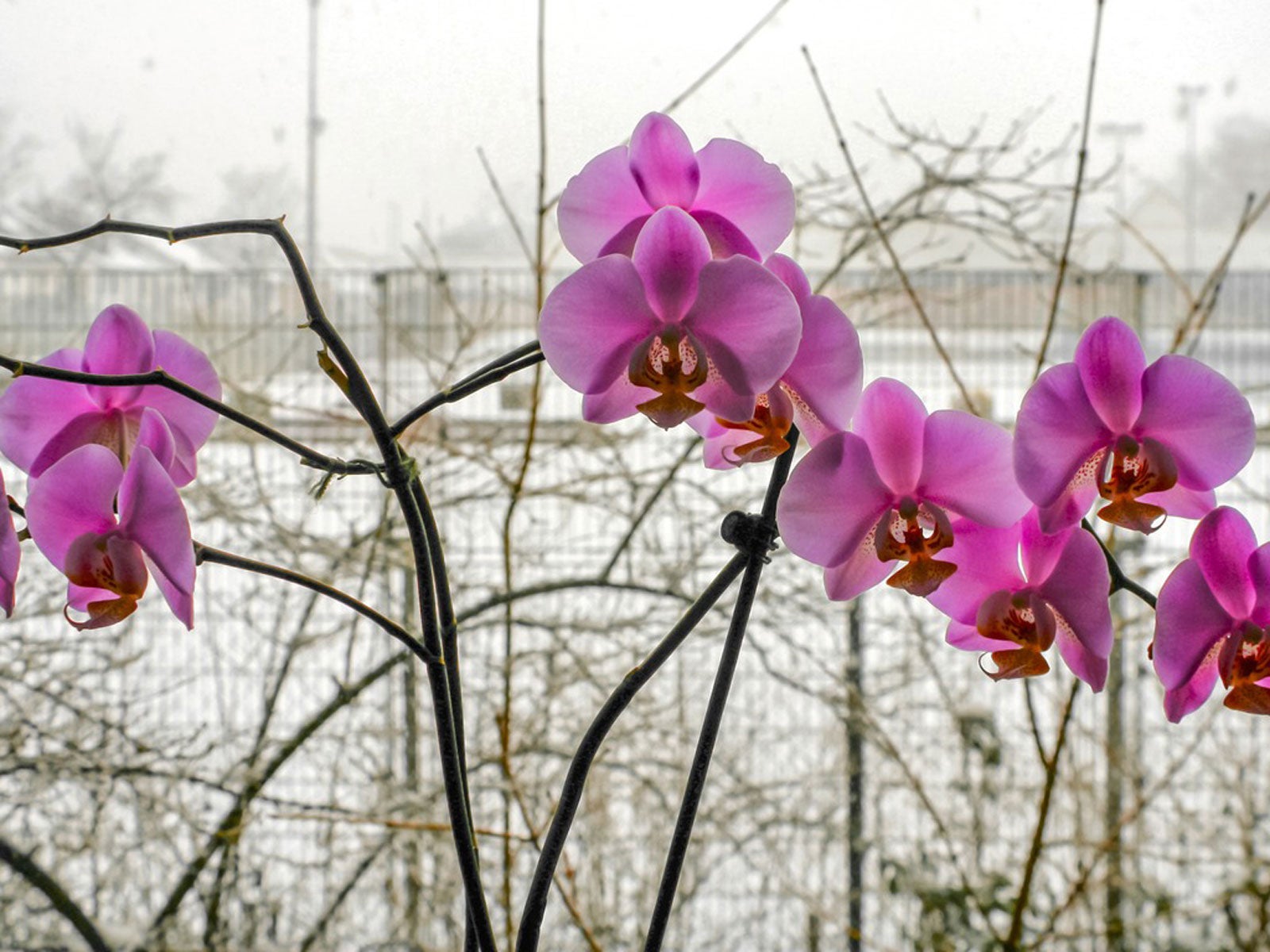Winter Orchid Requirements: Growing Orchids During Winter


Orchid winter care is different from summer care in seasonal climates. These tropical plants love warmth and humidity, so unless you have a greenhouse for the colder months, you’ll need to take certain steps to keep orchids happy and healthy.
Providing Warmth to Orchids During Winter
One of the most important considerations for orchid over winter is temperature. Orchids can tolerate colder temps ore than most people realize, but it isn’t ideal. Drops in temperature, even to just above freezing, for a short period are fine as long as the plant does not freeze or frost.
The ideal temperature range is 50 to 80 degrees F. (10-27 C.). Windows, where orchids often sit for the light, can get too cold, especially at night in the winter. Protect them at night by moving or insulate the plant with a layer of bubble wrap between it and the window.
Avoid putting your orchid near a radiator or heating vent. The dry, hot air is no better for the plant than cold air. Make sure there are no cold drafts either.
Light for Your Orchid Plant in Winter
Shorter days in winter mean less light. Orchids thrive in bright, indirect light, so put them in the sunniest room in the house with the most windows. Windows facing north or east are best. Keep orchids a little bit away from any south facing windows, as the light can be too direct.
Supplement natural light with a grow light if necessary. Inadequate light may prevent the orchid from flowering.
Additional Care for an Orchid Over Winter
Orchids also need less water in winter, but they still need humidity. Winter orchid requirements for humidity are no less than in summer. The problem is that winter air tends to be drier. Set plants on a tray of pebbles and water and mist them a couple of times a day, including the roots. Just be sure the roots aren’t actually in the water. Water less frequently, but keep the air around the plants moist with the pebble tray and regular misting.
Gardening tips, videos, info and more delivered right to your inbox!
Sign up for the Gardening Know How newsletter today and receive a free copy of our e-book "How to Grow Delicious Tomatoes".
This is the dormant time of year for orchids when they grow slowly. They don’t need as many nutrients as in summer, so don’t provide too much fertilizer. Let the plants rest. Cut back fertilizer to half-strength and provide it less often.
If an orchid suffers winter damage, such as frost or chill damage, it may still be salvageable. Signs of damage include sunken spots on leaves, discoloration, pitting, wilting, and browning. You may also see signs of fungal infections. Give damaged plants time to heal by eliminating fertilizer, reducing water, and increasing humidity as well as keeping them warm and away from direct light.

Mary Ellen Ellis has been gardening for over 20 years. With degrees in Chemistry and Biology, Mary Ellen's specialties are flowers, native plants, and herbs.
-
 Looking For Plants To Give You The Soft And Fuzzies? Try These 5 Fuzzy Leaf Plant Options
Looking For Plants To Give You The Soft And Fuzzies? Try These 5 Fuzzy Leaf Plant OptionsLovers of texture, drama, silver foliage and tactile plants will adore these special sensory garden additions. These fuzzy leaf plant options will leave you all aglow
By Susan Albert
-
 Get Ready For A Summer Of Hummers! Grow These Full Sun Hummingbird Plants and Flowers
Get Ready For A Summer Of Hummers! Grow These Full Sun Hummingbird Plants and FlowersIf you’re lucky enough to enjoy a sunny backyard, make sure you are maxing out on your pollinator opportunities and grow these full sun hummingbird plants and flowers
By Tonya Barnett